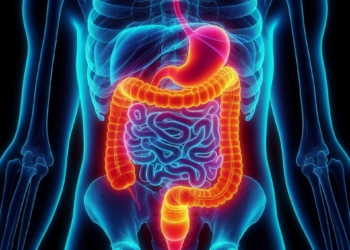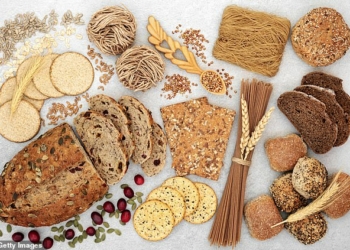Think back to the last time you ate so much you felt absolutely stuffed. Were you tearing into a huge cake to celebrate a friend’s birthday? Loading up on turkey and sweet potatoes at Thanksgiving? Or were you at home alone, maybe at the end of a tough day? How did you feel afterward — simply annoyed that you gave yourself a stomachache? Or were you tormented by guilt or shame?
Eating too much every once in a while is normal. So is eating for emotional reasons. “From the moment we’re born, we’re nurtured with food, rewarded with food, and so emotional connections to food are normal,” says Michelle May, MD, author of Eat What You Love, Love What You Eat.
People who compulsively overeat, though, may use food as their only way of coping with negative emotions. As a result, they often feel that their eating is out of control. They think about food all the time and feel guilty, ashamed, or depressed after eating. “That’s very different from what someone feels after, say, eating a big Thanksgiving meal,” May says. “You might feel full, and you might regret having had that last slice of pie, but you’re not consumed with shame.”
Some people who overeat have a clinical disorder called binge eating disorder (BED). People with BED compulsively eat large amounts of food in a short amount of time and feel guilt or shame afterward. And they do so often: at least once a week over a period of at least 3 months.
Not everyone who overeats is a binger. You might eat a lot of food throughout the day, rather than all in one sitting. And you might not do it regularly, but only when you’re feeling stressed, lonely, or upset.
How does it start?
In some cases, people simply overeat out of mindless habit, like always sitting down with a bag of chips in front of the TV at night. But oftentimes, it’s the result of underlying emotional problems. Having a negative body image can play a big role.
For many people, compulsive overeating is part of a cycle that starts with a restrictive diet. May calls it the “eat, repent, repeat” cycle. You might begin a diet because you feel bad about your weight or size but find that it’s too hard to stick to — especially if you use food as a coping tool. Eventually, you hit a breaking point and binge on “forbidden” foods, and then the guilt and shame set in, and the restrictions begin again.
The cycle can be hard to break. “Even people who say they’re not on a diet often have ingrained ideas about ‘good’ or ‘bad’ foods,” says Marsha Hudnall, president of Green Mountain at Fox Run in Vermont, a center for women who struggle with overeating. “But when you have a substance that is naturally appealing and soothing and comforting, and you make it off-limits, it just becomes more attractive.”
Can people be “addicted” to food?
In recent years, food addiction has become a popular idea among some scientists. Those researchers say that certain foods high in fat, sugar, and salt are addictive, causing changes in the brain similar to those made by drugs. Studies in animals have shown that rats that binge on sugar, for example, can develop signs of dependency.
But the idea of food addiction is controversial. For one thing, the standard treatment for addiction is abstinence, and that’s not possible with food. Also, “dieting is a very strong component of the binge eating cycle,” May says. “From that standpoint, it’s counterproductive to label certain foods as negative.”
There’s no doubt that eating can stimulate the release of feel-good chemicals in the brain, Hudnall says. “But that doesn’t make food an addictive substance. There’s evidence that it’s actually the behavior — the restrict/binge cycle — that causes the signs of dependency, not the food itself,” she says. Some researchers have even stated that the term “eating addiction” is a more accurate term than “food addiction.”
How can I control compulsive eating?
Seek help. It can be hard to stop overeating on your own, particularly if there are deep-rooted emotional problems involved, says Robin B. Kanarek, PhD, professor of psychology at Tufts University. Working with a counselor can help you uncover the psychological triggers — like a negative body image — that may be driving your behavior.
Avoid labels. “Understand that you’re not a bad person doing bad things,” May says. “Labeling yourself can become a self-fulfilling prophecy in terms of continuing the cycle.”
The same goes for labeling foods. “Food is food — it’s not ‘good’ or ‘bad,’” Kanarek says. “It can be hard to get over those deeply held beliefs, but research shows that if you eat what you deem a ‘bad’ food, you’re more likely to overeat afterward.”
Take a pause. When you feel like eating, pause for a moment and ask yourself: Am I hungry? “Sometimes people get so focused on what they want to eat that they don’t stop and ask themselves why they want to eat,” May says. If you use food as a coping tool, you may be out of touch with the cues that signal hunger or fullness, and it’s important to bring your awareness back to your body.
Change your environment. “A habit is very often simply a behavior that’s on autopilot,” Hudnall says. Making a tweak to your environment can return your focus to your behavior and give you a chance to make a more purposeful decision. For example, Hudnall says, “if you always sit in a certain chair to eat, move it to a different place in the room — or sit somewhere else entirely.”
Give into cravings — in moderation. Banning foods can cause you to overeat them later on. If you’re really craving something — even if you’re not hungry — give yourself permission to have a small amount.
End restrictive diets . “Overeating and restrictive eating are often two sides of the same coin,” May says. “Deprivation can be a trigger for overeating just like stress, anger, or anxiety.”















